Top tweets of February
Here’s a few great tweets we saw this month. What’s your favorite?
And don’t forget to follow us on Twitter!
1.
2.
3.
4.
5.
6.
7.
8.
Here’s a few great tweets we saw this month. What’s your favorite?
And don’t forget to follow us on Twitter!
1.
2.
3.
4.
5.
6.
7.
8.
You may have noticed that we post a list of our favorite books every month that cover a wide range of topics; friendship, courage and respect to name a few. These books provide a great opportunity to read with your child. Taking a few minutes to read together every day can be beneficial for both of you!
Builds bonds. Looking to spend a little more time with your child? Take a few minutes each day to read with them. Reading together is a great way to help them improve their reading ability. It’s an easy way to bond with your kid and teach them the value of reading at the same time. Win-win!
Boosts self esteem and communication skills. Sometimes children can be intimidated to interact with others verbally. Reading out loud can help children feel more comfortable communicating with others. Try reading a sentence or two and then having your kid repeat the same sentence. This allows your kid to hear it said once and then try it for themselves. This process allows them to practice their verbal communication skills in a safe environment.
Encourages creativity. Books can be a gateway to your child’s imagination. Exposing children to unique stories is a great way to engage your kid’s imagination and help grow their sense of creativity. Even if your kid is too young to read the actual story, encourage them to create their own!
Grows their vocabulary. Children can increase their vocabulary by reading regularly and it can help them succeed in the classroom. Reading with your kid gives them a chance to ask you about words they’re unfamiliar with. Learning new words and enjoying a fun story is a great way to help prepare your kid for challenges in the classroom!
“The more that you read, the more things you will know. The more that you learn, the more places you’ll go.”
-Dr. Seuss
For more resources on reading with children, click here.
Click here for more information on character education.
when

From our guest contributor, Frank Sonnenberg.
Some people believe that because they’re rich, powerful, or famous, they deserve our respect — regardless of their behavior. Actually, nothing could be further from the truth. Respect must be earned. So, how do you earn the respect of others? It’s easy to respect someone who displays the following qualities:
Authenticity. You are proud of who you are and what you stand for. You’re neither intimidated by someone else’s opinion nor worried about what people think of you. You don’t play games, have a personal “agenda,” or pretend to be someone you’re not. You’re the real deal. Ahh, so refreshing.
Knowledge. You might be very smart, but you don’t give the appearance of being a know-it-all. You’re curious about the world around you, eager to learn, and hungry to improve yourself.
Integrity. You have high ethical values and are true to your beliefs. You follow the spirit of the law, not because you signed an agreement or are afraid of being caught, but because it’s the right thing to do — and that’s good enough reason for you.
Honesty. Your life is an open book because you have nothing to hide. You’re passionate about being straightforward, and you’re happy to deliver good news without sugarcoating the bad. You don’t make promises lightly. In fact, your promise is as binding as a contract.
Fairness. You believe in building long-term relationships rather than settling for short-term gains. You strive for win-win relationships, knowing that if a solution isn’t evenhanded, no one wins.
Tolerance. You are receptive to ideas, beliefs, and cultures other than your own. In the process, you always try to evaluate all sides of an issue rather than forcing your personal opinion on others.
Humility. You are modest about your achievements, comfortable in your own skin, and quietly proud. You shift your focus from taking to giving, from talking about yourself to listening to others, and from hoarding the credit to distributing the praise.
Selflessness. You give to others because you want to, not because you expect anything in return. You believe that your kindness helps to build trust, strengthen relationships, and enhance everyone’s sense of self-worth — not to mention, adding to your karma.
Compassion. You go out of your way to treat others kindly even though you’ve reached the top of your game. You remember your roots and give credit to everyone who helped you along the way. You bring out the best in people in an effort to make everyone feel special, and you help those in need of a break.
Personal responsibility. You take charge of your life rather than feeling that the world owes you something. You set your goals high, make the commitment and sacrifice required to succeed, and accept the consequences of your choices. Of course, if things go south, you don’t play the blame game or fall back on excuses — you remain positive and steadfast.
Quality associations. You are vigilant about the people with whom you surround yourself, knowing that you win or lose respect based on the company that you keep.
This is adapted from Follow Your Conscience: Make a Difference in Your Life & in the Lives of Others By Frank Sonnenberg © 2014 Frank Sonnenberg. All rights reserved.
 Frank is an award-winning author. He has written six books and over 300 articles. Frank was recently named one of “America’s Top 100 Thought Leaders” and one of America’s Most Influential Small Business Experts. Frank has served on several boards and has consulted to some of the largest and most respected companies in the world. Additionally, FrankSonnenbergOnline was named among the “Best 21st Century Leadership Blogs” and among the “Top 100 Socially-Shared Leadership Blogs.” Frank’s newest book, BOOKSMART: Hundreds of real-world lessons for success and happiness, was released November, 2016 © 2017 Frank Sonnenberg. All rights reserved.
Frank is an award-winning author. He has written six books and over 300 articles. Frank was recently named one of “America’s Top 100 Thought Leaders” and one of America’s Most Influential Small Business Experts. Frank has served on several boards and has consulted to some of the largest and most respected companies in the world. Additionally, FrankSonnenbergOnline was named among the “Best 21st Century Leadership Blogs” and among the “Top 100 Socially-Shared Leadership Blogs.” Frank’s newest book, BOOKSMART: Hundreds of real-world lessons for success and happiness, was released November, 2016 © 2017 Frank Sonnenberg. All rights reserved.
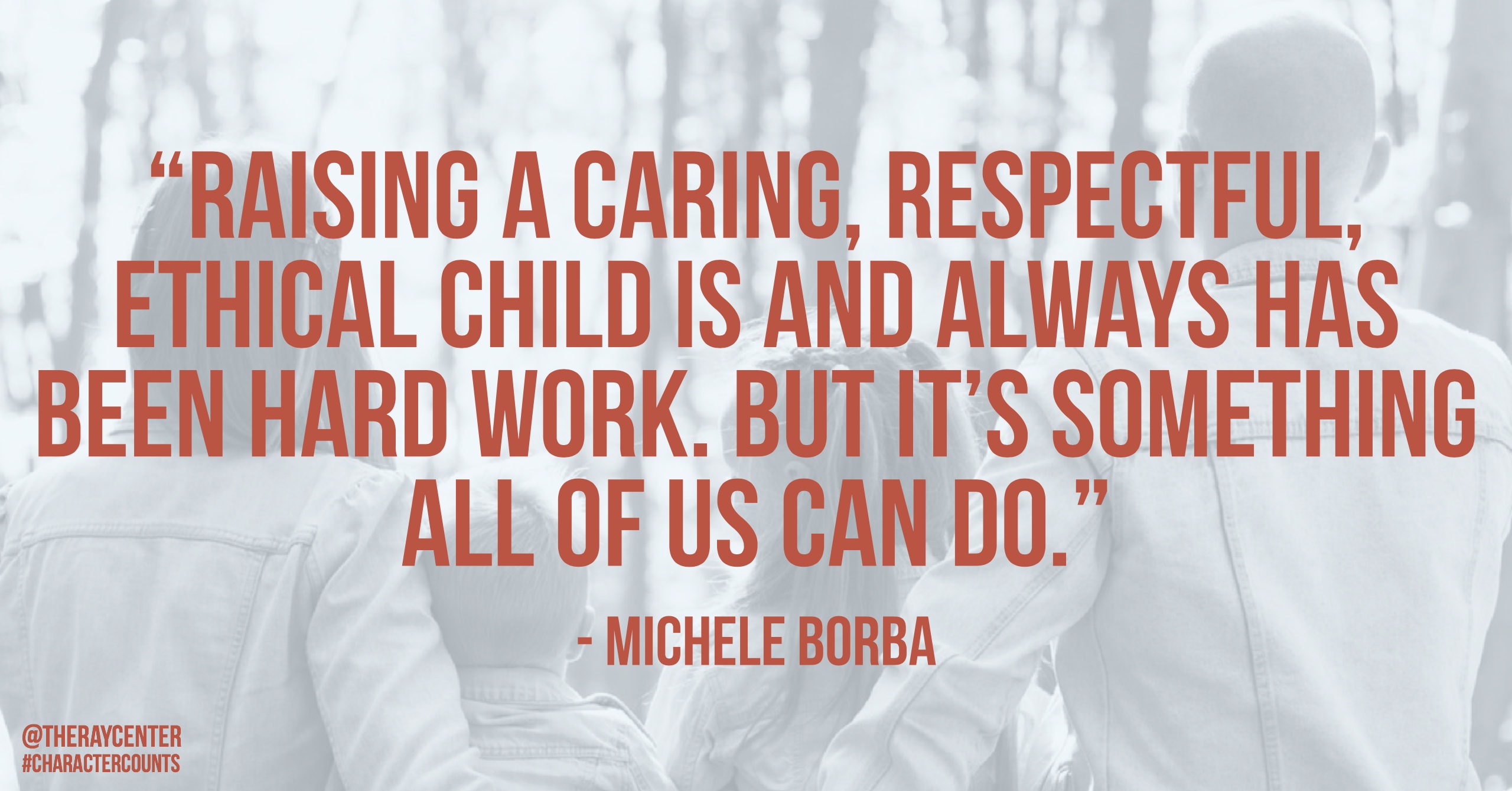
From our guest contributor Michele Borba.
Promote children’s ability to be ethical thinkers and positive change-makers in their communities
Why? Children are naturally interested in ethical questions and grappling with these ethical questions can help them figure out, for example,what fairness is, what they owe others, and what to do when they have conflicting loyalties. Children are also often interested in taking leadership roles to improve their communities. They want to be forces for good. Many of the most impressive programs to build caring and respect and to stop bullying and cruelty, for example, have been started by children and youth.
How? You can help children become ethical thinkers and leaders by listening to and helping them think through their own ethical dilemmas, such as, “Should I invite a new neighbor to my birthday party when my best friend doesn’t like her?” At the same time, you can provide opportunities for your children to fight injustice in their communities and to strengthen their communities in other ways.
Help children develop self-control and manage feelings effectively
Why? Often the ability to care for others is overwhelmed by anger, shame, envy, or other negative feelings.
 Dr. Michele Borba is an educational psychologist, parenting expert, TODAY show contributor and author of 22 books including The Big Book of Parenting Solutions: 101 Answers to Your Everyday Challenges and Wildest Worries and UnSelfie: Why Empathetic Kids Succeed in Our All-About-Me World.
Dr. Michele Borba is an educational psychologist, parenting expert, TODAY show contributor and author of 22 books including The Big Book of Parenting Solutions: 101 Answers to Your Everyday Challenges and Wildest Worries and UnSelfie: Why Empathetic Kids Succeed in Our All-About-Me World.
Check out: micheleborba.com or follow her on Twitter @micheleborba.
Guess How Much I Love You by Sam McBratney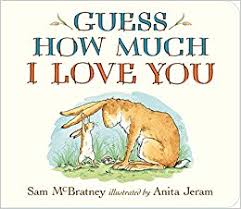
Best for: PreK – 2
ISBN-13: 978-0763642648
Little Nutbrown Hare shows his daddy how much he loves him: as wide as he can reach and as far as he can hop. But Big Nutbrown Hare, who can reach farther and hop higher, loves him back just as much. Well then Little Nutbrown Hare loves him right up to the moon, but that’s just halfway to Big Nutbrown Hare’s love for him.
View on Amazon View on Scholastic
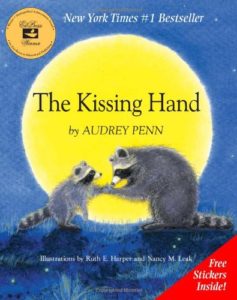
The Kissing Hand by Audrey Penn
Best for: PreK – 3
ISBN-13: 978-1933718002
School is starting in the forest, but Chester Raccoon does not want to go. To help ease Chester’s fears, Mrs. Raccoon shares a family secret called the Kissing Hand to give him the reassurance of her love any time his world feels a little scary.
View on Amazon View on Scholastic
Olivia and the Perfect Valentine by Natalie Shaw
Best for: PreK – 2
ISBN-13:978-1442484849
It’s almost Valentine’s Day, and Olivia is determined to make the very best possible valentines for all of her friends and family. Each valentine
is made with extra special care and is personalized just for its recipient.
Llama Llama I Love You by Anna Dewdney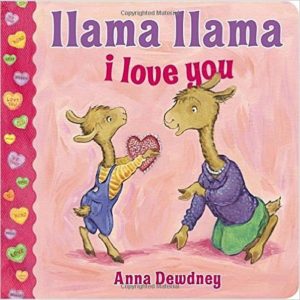
Best for: PreK – 2
ISBN-13: 978-045146981
In Llama Llama I Love You, little llama shows his friends and family how much he loves them with heart-shaped cards and lots of hugs. What could be sweeter than Llama Llama on Valentine’s Day?
View on Amazon View on Scholastic
How Do Dinosaurs Say I Love You? by Jane Yolen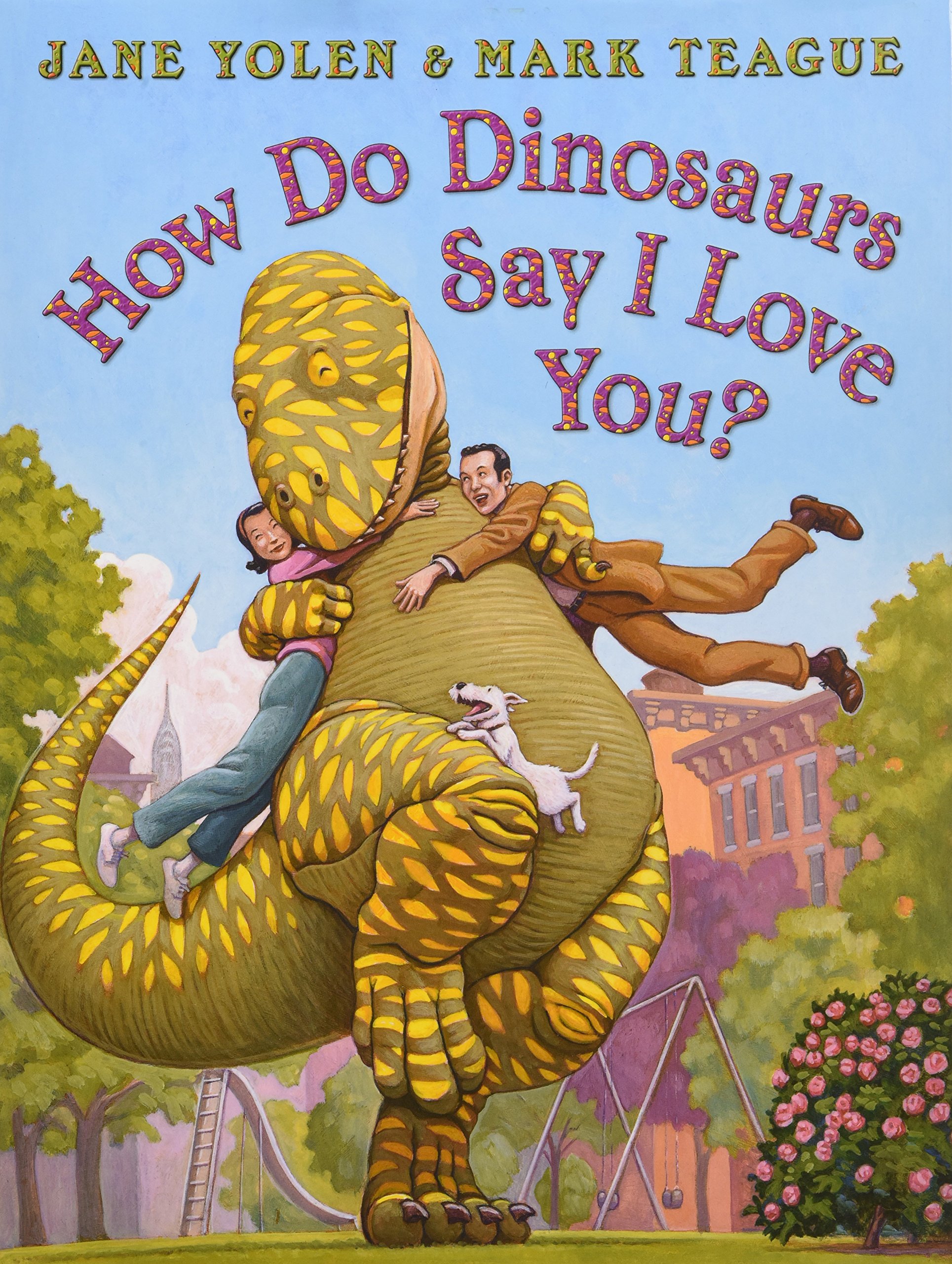
Best for: PreK – 3
ISBN-13: 978-0545143141
Parents and children can never have enough ways to say “I love you”–and now, America’s favorite dinosaurs are giving families a funny book, perfect for bedtime, storytime, anytime. Even when little dinosaurs are naughty, it’s important to remind them that no matter what they do, they are always loved.
View on Amazon View on Scholastic
I Love You Stinky Face by Lisa McCourt
Best for: PreK – 3
ISBN-13: 978-0439634694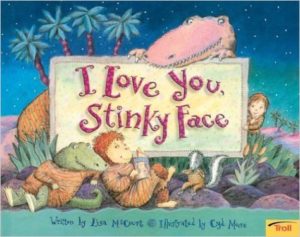
The imaginative son turns himself into a meat-eating dinosaur, a swamp creature and much, much more before being satisfied with the fact that no
matter how stinky he is or how slimy of a creature he could possibly be, he is loved and nothing will change that.
View on Amazon View on Scholastic
Mama, Do You Love Me? by Barbara M. Joosse
Best for: PreK – 4
ISBN-13: 978-0811821315
This beloved story of a child testing the limits of her independence, and a mother who reassuringly proves that a parents love is unconditional and everlasting is a perfect first book for toddlers.
View on Amazon View on Scholastic
Never Too Little for Love by Jeanne Willis 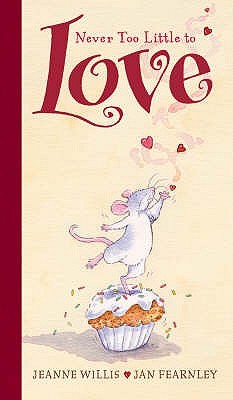
Best for: PreK – 2
ISBN-13: 978-0763666569
Tiny Too-Little loves someone who’s very, very tall, and Tiny wants a kiss. What if he stands on his tiptoes on top of a thimble? What if he stands on his tiptoes on top of a matchbox on top of a thimble?
The Shape of My Heart by Mark Sperring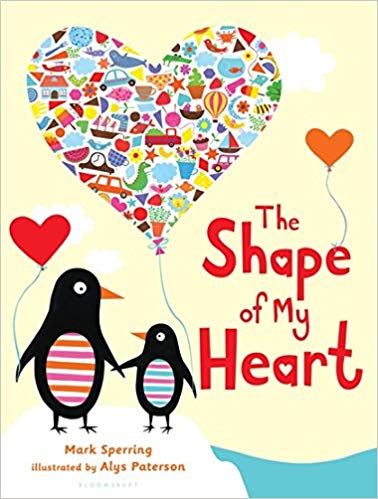
Best for: PreK – 1
ISBN-13: 978-1599909622
From sun up to sun down, from our hands and our feet, to animals, cars, food, and teddy bears, the world is alive with endless shapes to identify. With its gently reassuring text and vivid illustrations, The Shape of My Heart invites readers to look beyond the obvious, and explore the world in a whole new way.
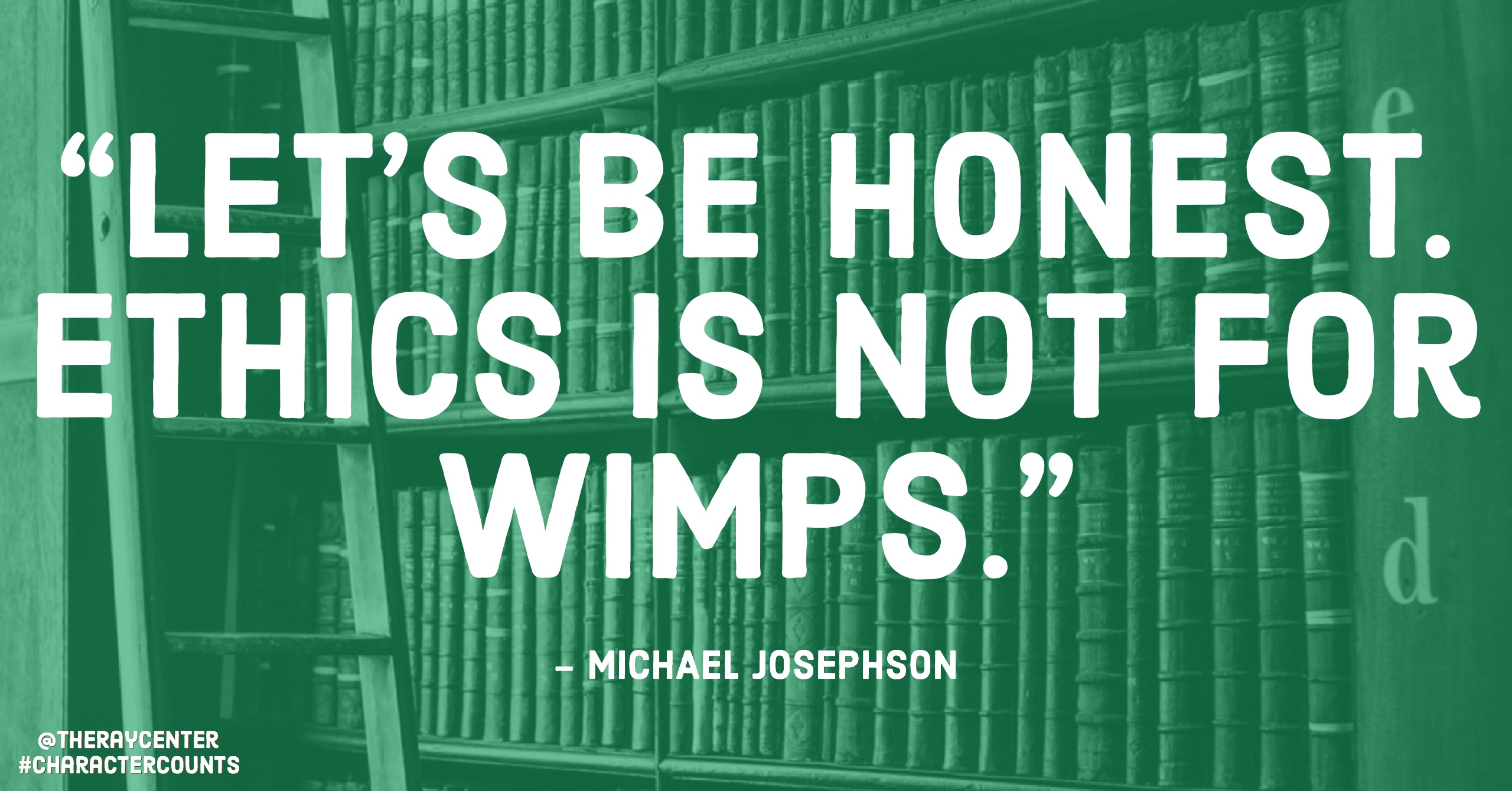
From our guest contributor Michael Josephson.
Let’s be honest. Ethics is not for wimps.
It’s not easy being a good person.
It’s not easy to be honest when it might be costly, to play fair when others cheat, or to keep inconvenient promises.
It’s not easy to stand up for our beliefs and still respect differing viewpoints.
It’s not easy to control powerful impulses, to be accountable for our attitudes and actions, to tackle unpleasant tasks, or to sacrifice the now for later.
It’s not easy to bear criticism and learn from it without getting angry, to take advice, or to admit error.
It’s not easy to feel genuine remorse and apologize sincerely or to accept apologies graciously and truly forgive.
It’s not easy to stop feeling like a victim, to resist cynicism, or to make the best of every situation.
It’s not easy to be consistently kind, to think of others first, to judge generously, or to give the benefit of the doubt.
It’s not easy to be grateful or to give without concern for reward or gratitude.
It’s not easy to fail and still keep trying, to learn from failure, to risk failing again, to start over, to lose with grace, or to be glad of another’s success.
It’s not easy to look at ourselves honestly and be accountable, to avoid excuses and rationalizations, or to resist temptations.
No, being a person of character isn’t easy. That’s why it’s such a lofty goal and an admirable achievement.
This is Michael Josephson reminding you that character counts.
 Michael Josephson is an influential and internationally renowned champion of character education for youth and ethical conduct in business, government, policing, journalism, sports, healthcare and law. He is credited by many as the person most responsible for reviving and professionalizing the character education in school and youth-serving organizations. In 1992, under the auspices of the Josephson Institute he created CHARACTER COUNTS!, the world’s most widely implemented character development initiative based on a common language of shared values – the Six Pillars of Character) and Pursuing Victory With Honor (1996), a companion program promoting ethics in sports.
Michael Josephson is an influential and internationally renowned champion of character education for youth and ethical conduct in business, government, policing, journalism, sports, healthcare and law. He is credited by many as the person most responsible for reviving and professionalizing the character education in school and youth-serving organizations. In 1992, under the auspices of the Josephson Institute he created CHARACTER COUNTS!, the world’s most widely implemented character development initiative based on a common language of shared values – the Six Pillars of Character) and Pursuing Victory With Honor (1996), a companion program promoting ethics in sports.